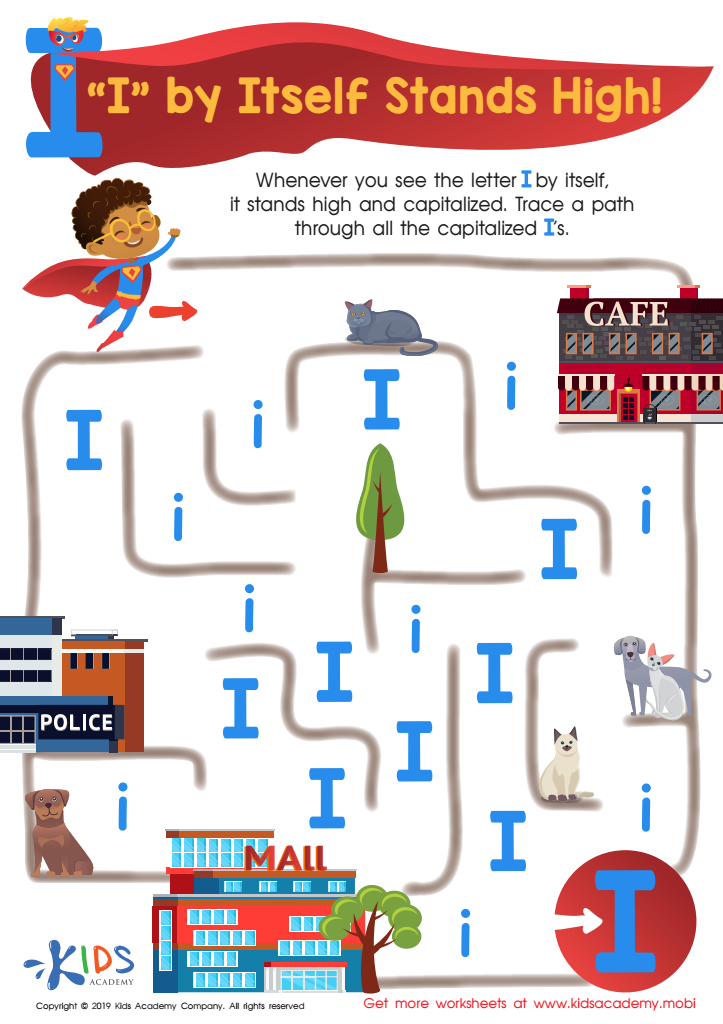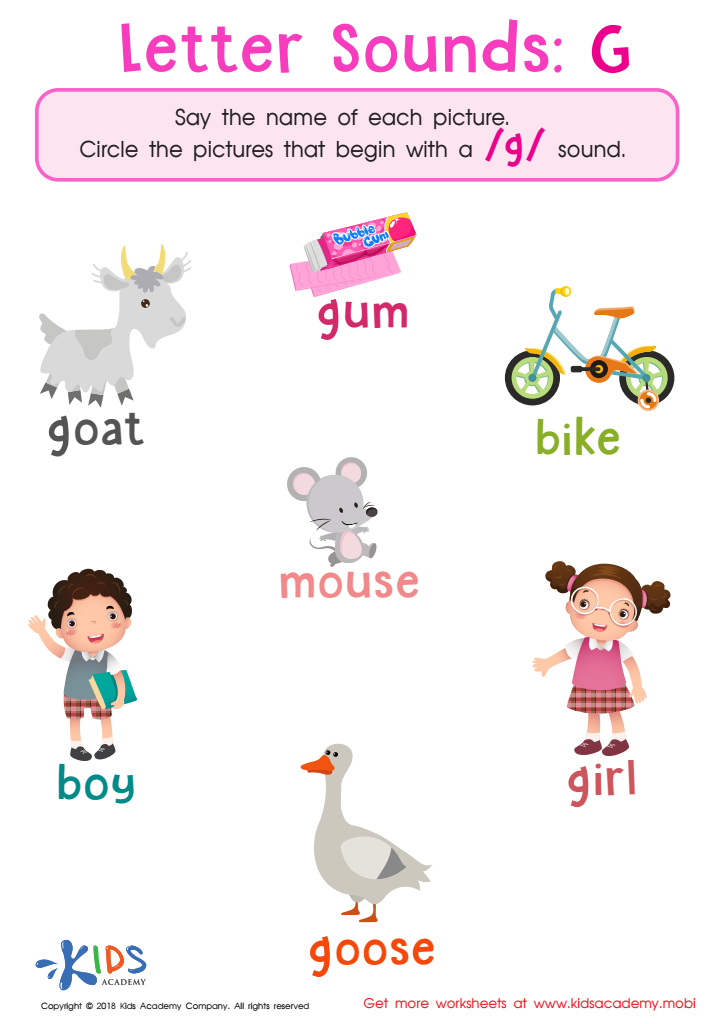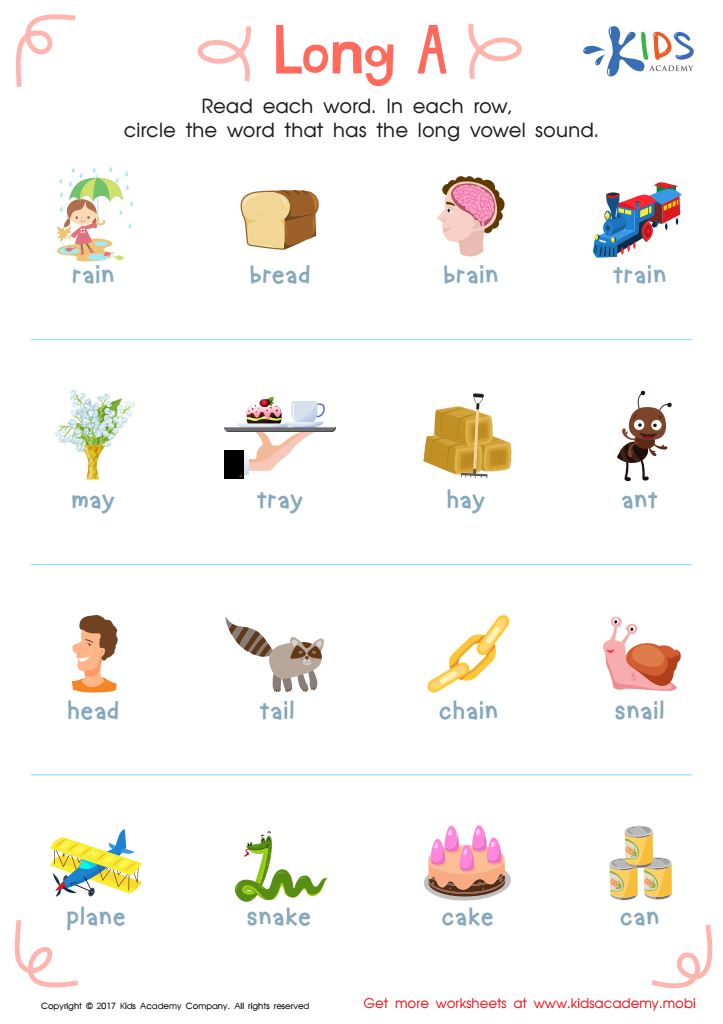Phonics improvement Normal Alphabet Worksheets for Ages 5-7
3 filtered results
-
From - To
Enhance your child’s reading skills with our Phonics Improvement Normal Alphabet Worksheets for ages 5-7. Designed to support early learners, these engaging worksheets focus on developing phonetic awareness through fun activities. Your little ones will practice letter sounds, learn to blend words, and improve their reading fluency in an exciting, child-friendly format. Each worksheet offers a variety of exercises that cater to different learning styles, ensuring every child can thrive. Perfect for home or classroom use, our worksheets help solidify foundational phonics skills and encourage a love for reading. Download now and embark on a phonics adventure with your child!


I Stands High Worksheet


Letter G Sounds Worksheet
Phonics is a fundamental skill for early readers, and its improvement is crucial for children aged 5-7, as they begin their reading journey. Understanding phonics allows kids to connect sounds with letters, forming the foundation of reading and writing. When children learn to recognize and manipulate sounds, they become more confident readers, which improves their overall literacy skills.
Parents and teachers should care about phonics improvement because it directly impacts a child’s academic success. Mastery of phonics enables students to decode unfamiliar words, making reading less intimidating and more enjoyable. This skill fosters a love for reading, which translates to better comprehension and stronger vocabulary over time.
Additionally, phonics instruction cultivates critical thinking skills as children learn to sound out words and predict text. Early interventions and focused phonics education can prevent reading difficulties in later years, ensuring children are on track for academic achievement. Engaging with phonics not only supports literacy but also enhances social-emotional development, as successful readers are often more willing to participate in classroom activities. By prioritizing phonics improvement, parents and teachers can equip children with essential skills for lifelong learning and success.
 Assign to My Students
Assign to My Students















